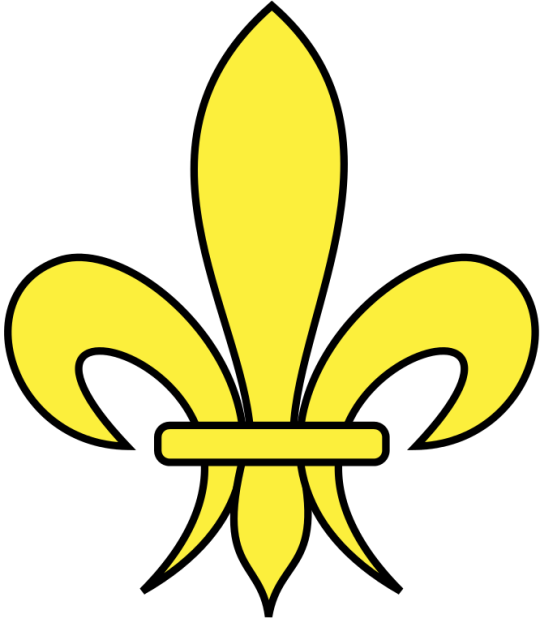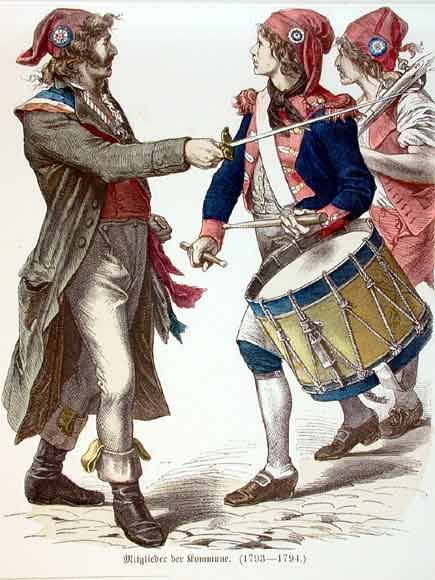#i hope there aren't mistakes bc i don't have the energy to double check this
Text
Alright, notes on 1.1.10 for Les Mis Letters:
"a former member of the Convention"
The Convention here refers to the National Convention which governed France through the first years of the First Republic (from September 1792 to November 1795). This was an eventful period which involved some massive progressive reforms for the time, various interesting experiments such as coming up with a new calendar, a new form of religion and the metric system, as well as the trial and execution of the former king and queen, and of course the famous Reign of Terror.
The Convention did some genuinely good things like abolished slavery (until Napoleon RE-ESTABLISHED IT BECAUSE HE SUCKS) but obviously also some extremely questionable things.
The Convention was abolished in 1795 and replaced by the much more conservative Directory.
"when people called each other thou"
The Hapgood translation tends to use the very archaic thou to translate the French pronoun tu. French (like most languages) has two words for "you": tu in singular and vous in plural. Vous is also used in place of tu as a form of polite address. In this era tu was actually used in very limited circumstances.
I won't get deeper into this topic because I would need to do more research into the specifics but generally speaking, in this era, the general use of tu for everybody in all contexts was seen as ideological and radical. I don't actually know how common it actually was among the radicals, I'm not a FRev expert.
The "citizen" thing definitely was a thing though.
"How did it happen that such a man had not been brought before a provost’s court, on the return of the legitimate princes?"
This indicates that we must be at least as far as the year 1814 now. The words of the Conventionist seem to confirm this date, although it's a bit ambiguous; it could also be later. I would assume that it wouldn't be later than 1815, but apparently the law that exiled the "regicides" wasn't passed until 1816, so idk, maybe this does take place later actually! In that case this episode would come chronologically after The Fall, which is the next book.
"The legitimate princes" would mean Louis XVIII and Charles the Count of Artois, the younger brothers of the overthrown Louis XVI. Louis XVIII was put on the throne by the Allies after Napoleon's defeat in 1814. (The reason why Louis XVIII is called the "eighteenth" rather than the "seventeenth" will be explained soon.)
The Bourbon Restoration, as this return of the royal family to the throne is called, was not a complete return to the pre-revolution system; there was a new constitution (the Charter of 1814) which at least in theory limited the king's power, and the Napoleonic Code was kept as the basis of the legal system.
The reception of Louis XVIII varied, and a lot of people obviously weren't happy that he was placed on the throne by foreigners who France had only just been at war with, but this is the South which was generally more royalist. (This reminds me, I should relisten to the 1814-1815 episodes of the Siècle podcast...)
"'93!"
I already talked about the year 1793 earlier so I won't repeat all that now
“Louis XVII.?”
(CW: child abuse)
As a royalist Myriel refers to the son of the former king as "Louis XVII". According to the royalists, at the moment of Louis XVI's death his son automatically became Louis XVII, despite never being crowned king. This is why the actual next king, Louis XVIII, is called the eighteenth. (As a recap: Louis XVIII was "Louis XVII's" uncle)
Little Louis died in captivity in 1795, at the age of ten. In the autopsy it was discovered that his body was horrifically scarred due to physical abuse.
"the brother of Cartouche"
Cartouche (1693-1721) was a famous highwayman and a folk hero, eventually caught and executed in 1721. I don't know much about him but now I kinda want to look more into it. His little brother Louis AKA Louison was hanged two years later as an accomplice despite being only about 15 (meaning he would have been only about 13 at most when he was supposedly being an accomplice to his brother.)
"fleur de lys"
⚜ The heraldic symbol of the French monarchy:

Supposedly representing a lily but apparently it might actually be an iris, idk.
"Bossuet chanting the Te Deum over the dragonnades?"
Bossuet was the bishop of Meaux 1681-1704, and a famous orator. He will come up again later in Les Mis.
The Dragonnades were part of Louis XIV (the Sun King)'s persecution campaign against the Huguenots.
Te Deum laudamus is a hymn and the title means "we praise thee, God".
"Carrier is a bandit; but what name do you give to Montrevel? Fouquier-Tainville is a rascal; but what is your opinion as to Lamoignon-Bâville? Maillard is terrible; but Saulx-Tavannes, if you please? Duchêne senior is ferocious; but what epithet will you allow me for the elder Letellier? Jourdan-Coupe-Tetê is a monster; but not so great a one as M. the Marquis de Louvois."
.... Okay I'm not gonna bother with all of these. Skip!
"the Abbey of Sainte Claire en Beaulieu, which I saved in 1793"
Several religious buildings were torn down during the Revolution, apparently the Conventionist spoke in favour of preserving this one? I don't actually know which abbey this is though or if this is a more specific reference. I can't be bothered to do any more research either tbh
According to an annotation on my edition of the novel, this might be an allusion to Hugo's father saving convents in Italy.
"those who despise it in a cap revere it in a hat.”
The red cap they're talking about is the Phrygian cap, which was worn by emancipated slaves in ancient Rome and which thus became a symbol of the Revolution (as it was a symbol of liberty). The cap is famously still worn by Marianne, the anthropomorphic personification of France.

The red hat Myriel alludes to, I assume means the galero, a wide-brimmed hat worn by cardinals. I could be wrong though, let me know if you have a better idea!
#les mis letters#myriel#god this got long#oof#im exhausted now xD#i hope there aren't mistakes bc i don't have the energy to double check this
85 notes
·
View notes